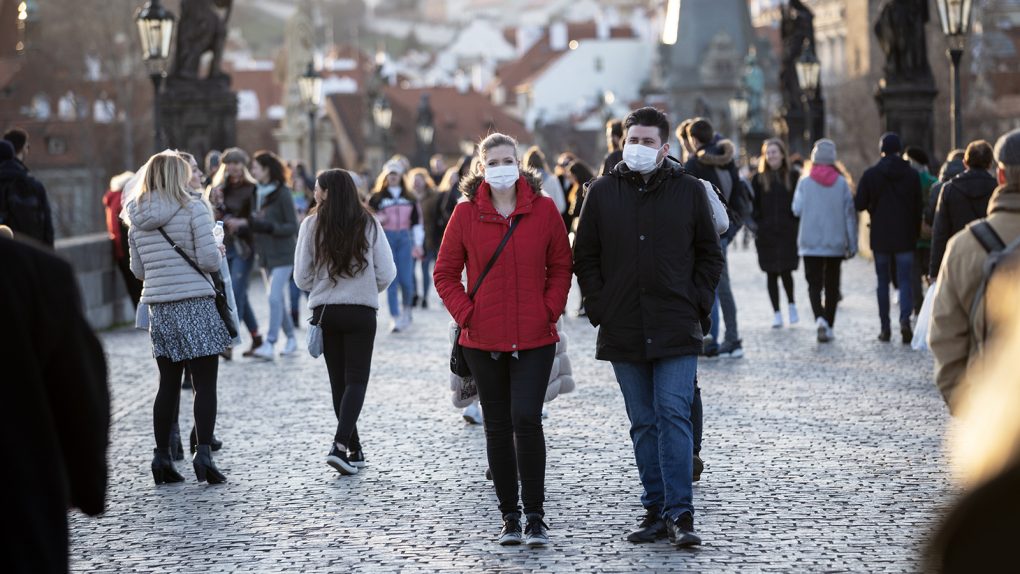- The number of new coronavirus cases has been on a continued decline for weeks as COVID-19 vaccinations ramped up.
- Despite that, experts still expect a fourth coronavirus wave to hit at some point in the coming weeks.
- The UK mutation is seen as the possible driver of the new wave of infections since the strain is more infectious than previous variants.
The coronavirus stats continue to improve in the US, as the number of new cases, hospitalizations, and deaths are all on downward trajectories. But tens of thousands of people are still infected every day. The figures for February 24th show more than 68,000 COVID-19 positive diagnoses, nearly 2,200 deaths, and more than 55,000 hospitalizations. Separately, more than 45.24 million Americans received at least one vaccine dose, with 20.61 million of them being fully vaccinated.
These statistics deliver good news, but health officials still expect a fourth wave to hit the US at some point in the coming weeks. The recently discovered SARS-CoV-2 mutants will be responsible for the upcoming surge in cases, with the UK variant (B.1.1.7) likely to drive infections.
Experts like Dr. Trevor Bedford expect the new coronavirus wave to start in the spring. Bedford is a virologist at the University of Washington and the Fred Hutchinson Cancer Research Center. “It’s going to increase in the spring. It could result in more of a wave in, say, April or May than we would have expected otherwise. But I still do suspect that things will be brought under control in the summer, and there will be very little virus circulating,” he said during a briefing via CNN.
He added that vaccination efforts and protective measures, including face masks and social distancing, will help control the new outbreaks. Bedford also said that it’s possible an additional surge could start in the fall.
Our daily update is published. States reported 1.2M tests, 68k cases, 55,058 currently hospitalized, and 2,196 deaths. pic.twitter.com/OcKo1FQbO5
— The COVID Tracking Project (@COVID19Tracking) February 24, 2021
“I think with the newly infectious variants, I think it is going to be difficult to prevent a fourth wave altogether,” Dr. Josh Schiffer said. The Fred Hutch infectious disease specialist has been modeling patterns of COVID-19 spread.
The B.1.1.7 mutation was detected in just 1,880 cases spread across 45 states. But those cases were confirmed via genetic testing, which isn’t widely available in the US compared to the UK, according to Bedford.
A separate report this week warned that the B.1.1.7 mutation could fuel a renewed surge of infections next month. The CDC previously said the UK mutation could become dominant by March. The report warned that the UK mutation could drive another record wave, surpassing the previous records from early January. “If the US experiences a surge similar to that seen in the UK, one could expect to see unprecedented healthcare demand of 175,000 to 193,000 hospitalizations per day — far surpassing the US peak of 132,474 individuals hospitalized with COVID-19 set in early January,” the report said, via CNN. The report suggested the US should consider speeding up vaccination by skipping the second dose, for now, so more people can get at least some protection.
Israel, the country with the highest percentage of vaccinated people, concluded a large-scale real-life study, finding that the Pfizer/BioNTech vaccine was 92% effective at preventing severe illness after both shots. Efficacy was at 62% after the first jab. Furthermore, the vaccine was 72% effective at preventing death two to three weeks after the first shot. Separately, studies have shown that COVID-19 survivors might only need a single vaccine dose, suggesting a protocol change could help save doses for people who were never exposed to COVID-19.
The current vaccines can neutralize the B.1.1.7 strain, and people who have had COVID-19 aren’t at risk of infection. The South African strain, however, reduces the effectiveness of vaccines and can lead to reinfections.
Earlier this month, Dr. Michael Osterholm warned in an interview with CBS This Morning that “the next 14 weeks I think will be the worst of the pandemic.”
“People don’t want to hear that, but if we look at what these variants are doing, particularly this one from the United Kingdom, and see what it did in Europe, see what it’s done in the Middle East, it’s now beginning to start that here in the U.S. We are going to see that unfold,” he said. Osterholm is a member of the White House’s COVID-19 advisory board.
While some think a fourth COVID-19 wave is imminent, other experts indicate that the US might be closer to herd immunity than expected and that the number of infections will go down in spring, and especially in the summer.








